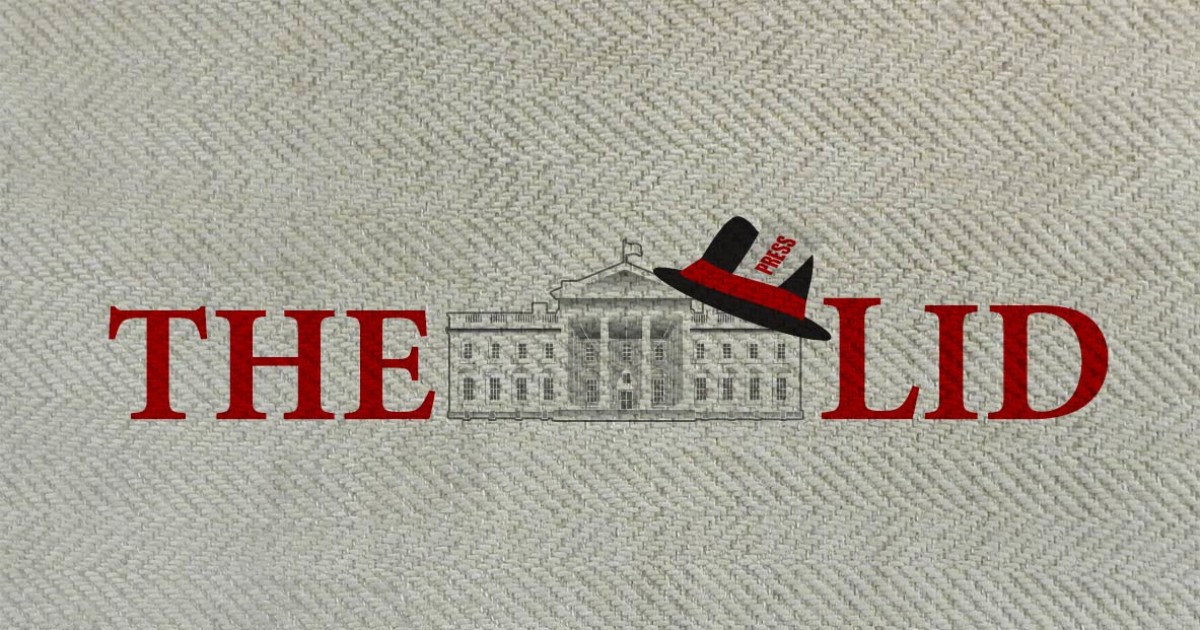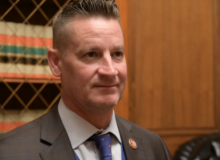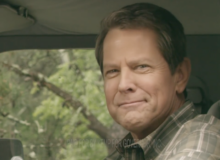California is considering a bill to outlaw free speech by climate skeptics. It’s called the “California Climate Science Truth and Accountability Act of 2016”
According to the California Senate:
This bill would retroactively extend the statute of limitation to 30 years for claims brought under the Unfair Competition Law
alleging unfair competition with respect to scientific evidence regarding the existence, extent, or current or future impacts of anthropogenic induced climate change. The retroactive statute of limitation created by this bill would apply only to claims
brought by specified public prosecutors.
The explanation behind the bill makes it seem to be a way to target oil companies, as the examples it uses include:
A few weeks before seminal climate change talks in Kyoto back in 1997, Mobil Oil took out a bluntly worded advertisement in the New York Times and Washington Post. “Let’s face it: The science of climate change is too uncertain to mandate a plan of action that could plunge economies into turmoil,” the ad said. “Scientists cannot predict with certainty if temperatures will increase, by how much and where changes will occur.”
Their problem with that advertisement is that at the same time they were casting doubts on climate change, they were also investigating whether it is true.
One year earlier, though, engineers at Mobil Oil were concerned enough about climate change to design and build a collection of exploration and production facilities along the Nova Scotia coast that made structural allowances for rising temperatures and sea levels. (Amy Lieberman and Susanne Rust, Big Oil Braced for Global Warming While it Fought Regulations, Los Angeles Times, Dec. 31, 2015.
Let’s examine their claims for a moment. First of all, any corporate management that doesn’t constantly evaluate threats and opportunities is ignoring it’s responsibility and should be fired for malfeasance. The Mobile Oil research described above was exactly that type of effort.
As to the ad mentioned by the California senate, Mobile Oil was entirely correct when it said, “Scientists cannot predict with certainty if temperatures will increase, by how much and where changes will occur.” Let’s look at some examples:
- In 2008 Al Gore predicted in front of a German audience that the “North Polar Ice Cap would be completely ice free in five years” and that “the entire North ‘polarized’ cap will disappear in 5 years.” It’s eight years later and the ice cap’s still there.
- The San Jose Mercury News reported on June 30, 1989 that “senior environmental official at the United Nations, Noel Brown, says entire nations could be wiped off the face of the earth by rising sea levels if global warming is not reversed by the year 2000.”
- Prince Charles weighed in on July 8th of 2009 and said “irretrievable climate and ecosystem collapse, and all that goes with it.” He went on to say that experts had told him that we had about 26 months before utter catastrophe. That didn’t happen, so in 2015 he gave us 35 years grace.
- Polar Bears are alive and well and not dying out. In the Fall 2014 issue of RANGE Magazine Dr. Susan Crockford wrote, “In a recent TV ad campaign, the Center for Biological Diversity said, “global warming is pushing polar bears to the absolute brink.” Results of recent research show this to be a lie – fat, healthy bears like this one from near Barrow, Alaska, are still common and many of the assumptions used by computer models to predict future disasters have turned out to be wrong.” In case you were wondering, walruses are doing fine also.
And let’s not forget the biggest thing the followers of the climate change hypothesis has gotten wrong. It’s not getting warmer, and it hasn’t gotten warmer in 18 years and ten months (through March).

Allow me to put the climate change pause of 18 years and 10 months in perspective. Consider the High School Seniors who graduate next month in June. These kids have had the climate change hypothesis drilled into their heads during their entire time in school, yet during their entire time on this Earth the planet hasn’t warmed.
In May 1997, the month before the pause began, Bill Clinton was only four months into his second term, and we wouldn’t hear the name Monica Lewinsky for another year. May 1997 was also the month that America was introduced to Austin Powers: International Man of Mystery, as the first movie in the series, was released. But the top movie release that year was Spiderman 3. Since that release two other actors have played the webbed hero in the movies (and one on Broadway).
Not only were the experts wrong about Global Warming (and Mobile was correct) but they are still very wrong.
The biggest problem with the California law (text below) isn’t that it is based on incorrect assumptions (it is), but it is a dangerous infringement on freedom of speech, heck it is outlawing free speech. If one is no longer permitted to offer information which rebuts the unproven climate change hypothesis, what’s next? Will they disallow public discussion about conservative principals such as smaller government? Will they throw anyone who is pro-life in jail? Outlaw non-Christian religions like Judaism? What other opinions will they outlaw?
Supposedly the California Senate will vote on this bill Thursday and send it along to the lower house.
UPDATE: The bill was tabled so free speech is saved (for now):
The bill is considered dead because the house-of-origin deadline is midnight Friday and the state Senate is not scheduled to meet again before that. Later this year, however, the same language could be reintroduced under a waiver of the rules or inserted into another bill as part of the gut-and-amend process.
Text of the California Climate Science Truth and Accountability Act of 2016:
SECTION 1. This act shall be known, and may be cited, as the California Climate Science Truth and Accountability Act of 2016.
SEC. 2. (a) The Legislature finds and declares all of the following:
(1) There is broad scientific consensus that anthropogenic global warming is occurring and changing the world’s climate patterns, and that the primary cause is the emission of greenhouse gases from the production and combustion of fossil fuels, such as coal, oil, and natural gas.
(2) The United States Environmental Protection Agency (USEPA) states that the buildup of atmospheric greenhouse gases results in impacts that include the following:
(A) Changing temperature and precipitation patterns.
(B) Increases in ocean temperatures, sea level, and acidity.
(C) Melting of glaciers and sea ice.
(D) Changes in the frequency, intensity, and duration of extreme weather events.
(E) Shifts in ecosystem characteristics, such as the length of the growing season, timing of flower blooms, and migration of birds.
(F) Increased threats to human health.
(3) Impacts and damages from emissions of greenhouse gases that cause climate change have been occurring for many years and will be felt from decades to centuries after those emissions have occurred. The USEPA states, “[b]ecause many of the major greenhouse gases stay in the atmosphere for tens to hundreds of years after being released, their warming effects on the climate persist over a long time and can therefore affect both present and future generations.”
(4) Reports and documentation published by researchers, public interest nongovernmental organizations, and media in recent years show that some fossil fuel companies were aware by the late 1970s of scientific studies showing that carbon dioxide emissions from fossil fuel combustion pose significant risk of harmful global warming. The reports and documents also indicate that by the mid-1980s fossil fuel company scientists were confirming in internal documents intended for company management that emissions from fossil fuels were contributing significantly to climate change, and companies were factoring global warming into their own business investments.
(5) By 1988, the scientific evidence of climate change and the significant risks it poses was widely communicated to the public and was confirmed in congressional testimony by the National Aeronautics and Space Administration (NASA). In that year, the United Nations formed the Intergovernmental Panel on Climate Change and the federal National Energy Policy Act of 1988 (House Resolution 5380, 100th Congress) was introduced in Congress in an effort to reduce the emissions of greenhouse gases. Because of the highly public dissemination of information, congressional discussion, and extensive media coverage of the robust scientific evidence of the risks of continued burning of fossil fuel products, major fossil fuel producers knew or should have known the risks of continued burning of their products by 1988.
(6) More than half of all industrial carbon emissions have been released since 1988, after the fossil fuel businesses knew of the harm their products might cause, and have substantially increased risks from climate change impacts to life, health, and property.
(7) Since at least 1989, published reports indicate that some of these same entities have put sustained and significant efforts and resources into creating public doubt on the science related to climate change caused by anthropogenic sources.
(8) Misleading and inaccurate information disseminated by organizations and representatives backed by fossil fuel companies, along with advertising and publicity casting doubt on scientific understanding of climate change, have led to confusion, disagreement, and unnecessary controversy over the causes of climate change and the effects of emissions of greenhouse gases. This type of misinformation, widely and broadly disseminated in the media, has long delayed public understanding of the risks of continuing to emit high levels of greenhouse gases, confused and polarized the public on the need to aggressively reduce emissions to limit risks from climate change, and increased damage to public safety, health, and property in California as well as nationally and globally.
(9) Scientific studies indicate that climate change impacts are occurring in California, causing significant damage to the economy, environment, and public health. In a 2013 report on climate change indicators, the Office of Environmental Health Hazard Assessment found that California is already experiencing serious and measurable impacts from atmospheric warming in the state’s weather, water systems, high wildfire frequency and intensity, plant and animal species health, and human health and morbidity.
(10) Climate change has been tied by scientists to the severity and intensity of the historically unprecedented and costly drought that California has been experiencing since 2011 that has resulted in communities running out of water, agricultural water cutbacks, and unprecedented groundwater use that has caused subsidence and a loss of storage capacity in the state’s critical aquifers.
(11) An independent bipartisan report, published in 2014, indicates that, by 2050, California will be suffering economic losses of tens of billions of dollars due to climate change-related impacts and that heat-related deaths could be twice the number of current traffic-related deaths annually by the late 21st century.
(b) It is the intent of the Legislature to retroactively revive and extend the statute of limitation for actions that may or may not be barred by the applicable statute of limitation existing before January 1, 2017, and that seek redress for unfair competition practices committed by entities that have deceived, confused, or misled the public on the risks of climate change or financially supported activities that have deceived, confused, or misled the public on those risks.
SEC. 3. Section 342.5 is added to the Code of Civil Procedure, to read:
342.5. (a) (1) Notwithstanding Section 17208 of the Business and Professions Code, an action pursuant to Chapter 5 (commencing with Section 17200) of Part 2 of Division 7 of the Business and Professions Code against a corporation, firm, partnership, joint stock company, association, or other organization of persons that has directly or indirectly engaged in unfair competition, as defined in Section 17200 of the Business and Professions Code, with respect to scientific evidence regarding the existence, extent, or current or future impacts of anthropogenic-induced climate change that would otherwise be barred as of January 1, 2017, solely because the statute of limitation has or had expired, is revived and, in that case, the action may be commenced within four years of January 1, 2017. Nothing in this subdivision shall be construed to alter the applicable limitation period of an action that is not time barred as of January 1, 2017.
(2) Paragraph (1) does not apply to actions alleging claims described in paragraph (1) for which a final and nonappealable judgment has been rendered.
(b) This section applies only to actions brought by the Attorney General or a district attorney.






